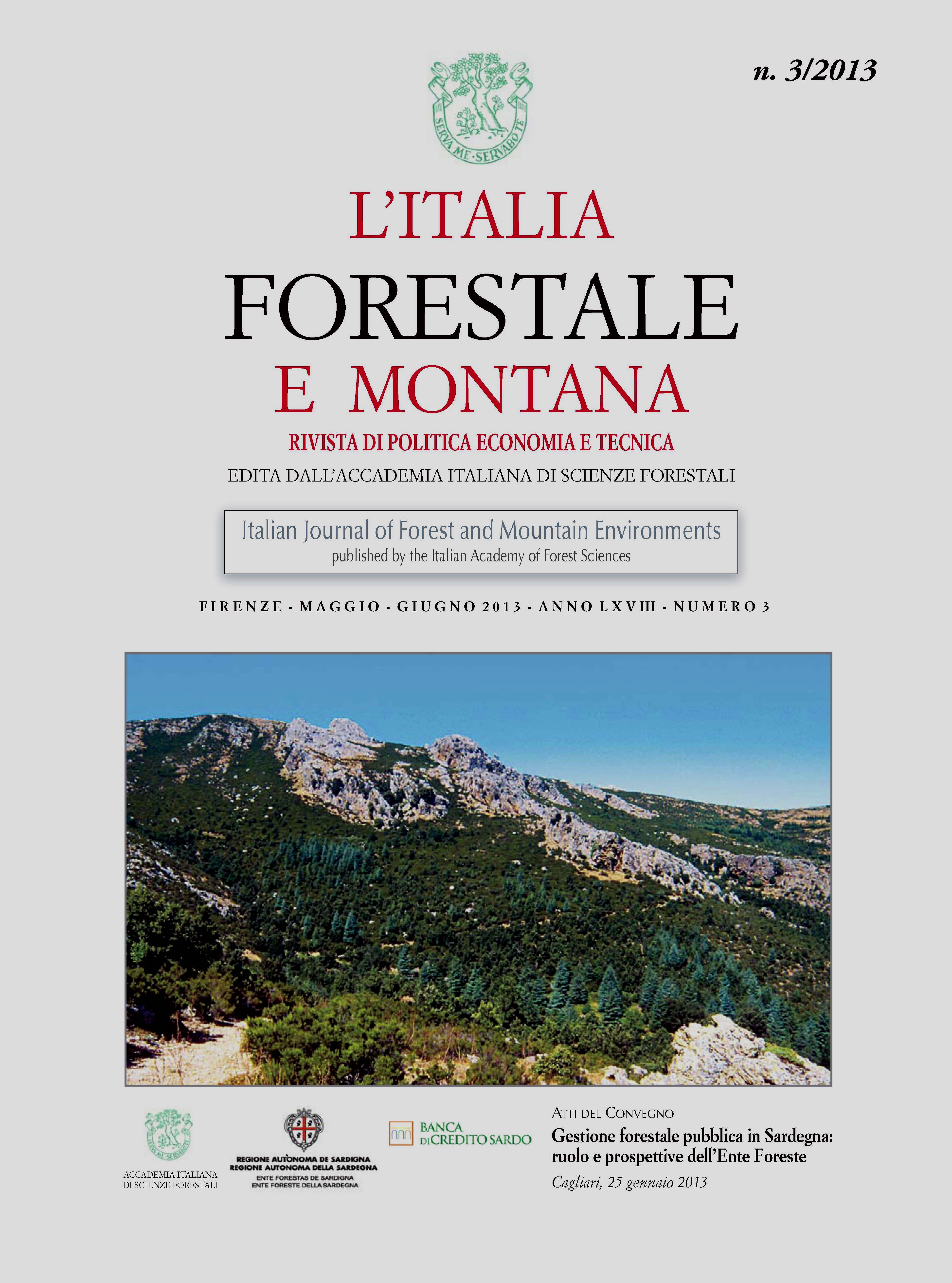Published
2013-07-02
Keywords
- pests,
- invasive pathogens,
- emerging diseases,
- integrated control
Abstract
Phytosanitary emergencies concerning Sardinian forests and their possible control strategies are examined. Emerging diseases are mainly attacks of Biscogniauxia mediterranea,the causal agent of “charcoal disease”, Diplodia corticola, a pathogen causing branch canker and dieback on downy oak, holm oak and cork oak, and other Botryoshaeriaceae species, involved in the etiology of oak decline and new hosts in the Mediterranean maquis (tree heath,strawberry tree and juniper). Furthermore, the occurrence of several Phytophthora spp., casual agents of root and collar rot and canker in chestnut and oak stands and on several species of the Mediterranean maquis, are becoming significant and alarming in terms of disease severity and spread throughout the regional forest area. As far as the pests are concerned, damage and control programs against infestations of Lymantria dispar, Malacosoma neustrium and Tortrix viridana in oak forests and Thaumetopoea pityocampa in pine stands, are reported. Concerning xylophagous beetles, Platypus cylindrus and Tomicus destruens are pointed out as a threat to cork oak and pine stands,respectively. Results of biological control programs against Dryocosmus kuriphilus in chestnut stands, and Ophelimus maskelli and Glycaspis brimblecombei in eucalyptus stands are also reported. Finally, the control strategies against Rhynchophorus ferrugineus to avoid its spreading to dwarf fan palm systems are described. The present phytosanitary situation underlines the urgent need to develope an information system on the health status of Sardinian forests in order to increase knowledge, improve research activity and develop adequate control strategies.


